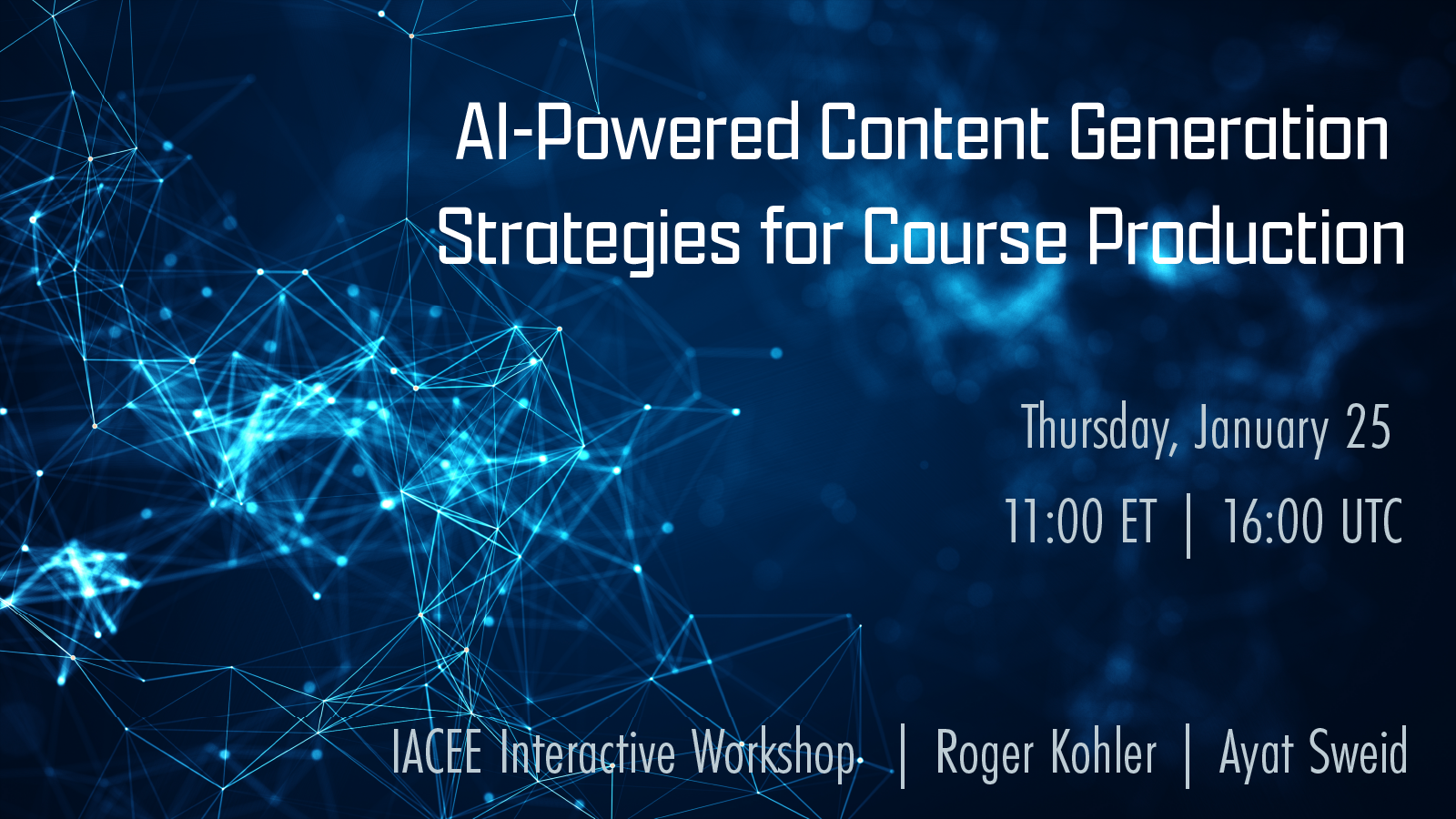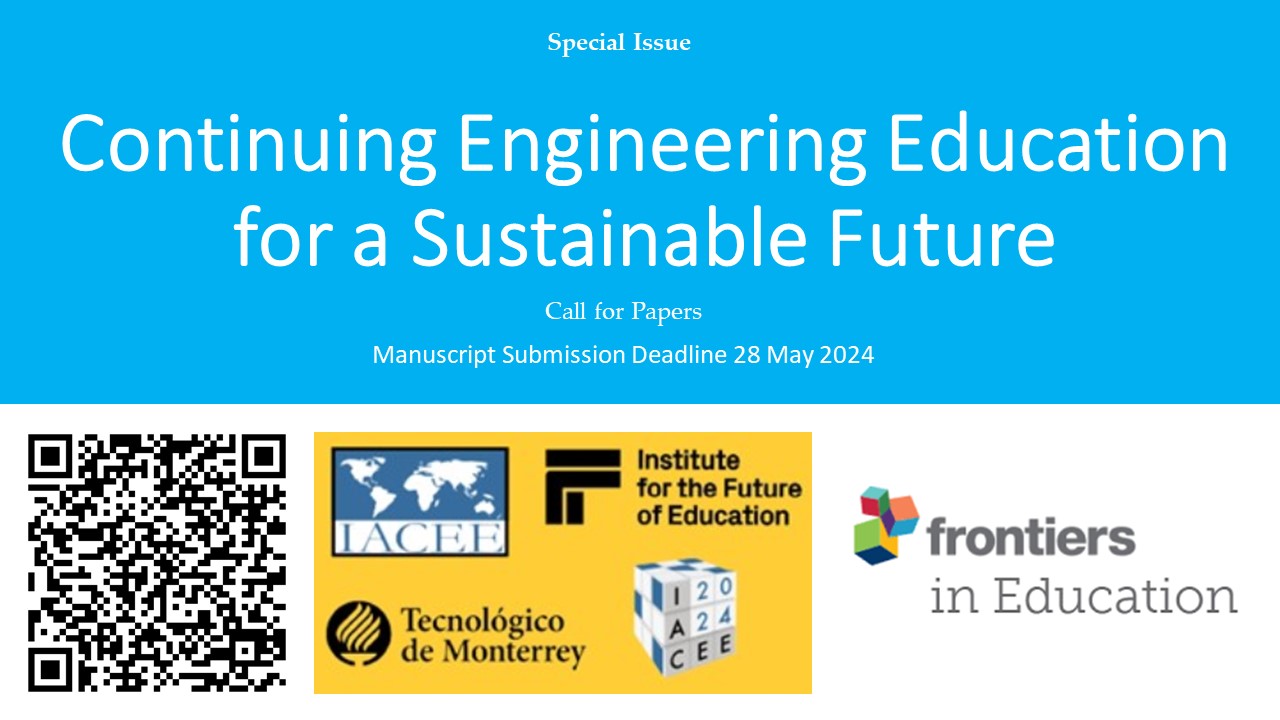IACEE Pulse: February 2024
- Letter from the President
- 2024 World Conference News
- Summary & Recording of January Workshop
- Global Trends in CEE
LETTER FROM THE PRESIDENT
My Dear IACEE Community:
This Pulse is full of information on the upcoming World Conference to be held in Comillas, Spain, on May 21-24, 2024. The preparation is all on track and underway. While talking with some IACEE members the other day, I remembered we are in the 35th year of IACEE. We will, therefore, celebrate the completion of 35 years of IACEE in Comillas.
Much has changed in the last few years for IACEE, especially during the pandemic, which slowed the progress of IACEE and limited member engagement. We are also planning to take this opportunity to be in Comillas, a picturesque place with ocean and mountains, and meet face-to-face to have a retreat-like conference, where we will RENEW, REBUILD, and RECHARGE. Please read the details in this Pulse and join us in May to celebrate the 35 years of IACEE at the 19th World Conference.
In the coming months, you will hear more from us about the conference and the upcoming Council election. Stay tuned.
On a personal note, I have retired from Ansys as of January 4th this year and have committed to helping IACEE as much as possible.
Thank you and warm wishes,
Soma
Soma Chakrabarti, PhD
President, IACEE
soma.chakrabarti@iacee.org
The IACEE World Conference is focused on building community and serving as a hub for new ideas, ventures, and partnerships. Participants from industry, research, and academia can share ideas for collaboration, and also exchange their best practices and lessons learned to advance themes of continuing engineering education and building a sustainable future for generations to come. We are excited to announce that early bird registration for the 2024 World Conference is open.
Register today and join us in Comillas, Spain, May 21-24, 2024. Our host this year is the Innovation Hub Europe, a collaborative venture between the University of Cantabria and the Tecnológico de Monterrey’s Institute for the Future of Education.
Visit the conference website to view the draft conference program and find travel and hotel recommendations to help you plan your trip. We are continuing to update the travel page with the latest hotel options and helpful travel notes.
This year's conference will cover a wide range of topics to provide a comprehensive understanding of the challenges and opportunities in this field. Topics of particular interest include:
- Education meeting the demands of a technology-based labor market
- Reskilling and upskilling workers for a sustainable future
- Emerging trends and approaches in DEI and Social Justice
- Future skills and industry 5.0 in organizations
- Advocacy actions related to sustainability
- Diversity, equity, and inclusion perspectives in the workforce
- Quality assessment tools in professional development programs
- Academic-industry partnerships and CEE sustainability
The extended abstract submission portal is open through March 4, 2024, and we welcome your submissions. Extended Abstracts (800 - 1200 words) must be submitted electronically through the IACEE Abstract Submission System. Extended Abstracts will be published in the IACEE 2024 Conference Abstract Book (available online with an associated ISBN).
For those authors interested in promoting their work in the academic field, the IACEE has opened a Special Issue in the Journal Frontiers in Education (Scopus Q2, open access, Impact Factor 2.3, Citescore 2.3).
This publication opportunity is independent of the conference and seeks to highlight the academic work of the IACEE community in Continuing Engineering Education. For more information on how to submit an article, please visit our website.
Register today and join us in May for a robust conference in a lovely venue!
Summary & Recording of January Workshop on AI-Powered Content Generation Strategies for Course Production

The workshop speakers, Roger Kohler and Ayat Sweid, did a demonstration of adventure learning through generative AI. The learner will be a time traveler to get there a year earlier than the potato famine to simulate a role play of events leading to the famine. The learner can ask questions and have a visual experience through the images created by generative AI, providing more of an interdisciplinary understanding.
The interactive workshop prompt was "How can generative AI be used for content in environments?" Participant thought sharing included --
- Job requirements and industry will influence how higher ed teaches AI
- AI can help create the framework to conceptualize a course and expedite the process
- Students can divide a problem into smaller problems where ChatGPT can help students understand the path by providing solutions to sub problems and small steps.
Overall, generative AI can be impactful on educational experiences. We need generative AI to help us so that we can amplify those thought leaders to teach more people and raise all of humanity with our 8 billion population ~ Roger Kohler. Mixture of AI human enabled technology approach and embrace it with disciplined innovation. ~ Ayat Sweid
As Jeff Bezos said Generative AI is not an invention, it's a discovery. IACEE is building a community and bringing the vision of hope and optimism to important topics in continuing engineering education. If you didn't catch the live workshop, you can still watch the recording and interact with the polls. Please use Chrome or Edge, select "Playback Room", and sign in with your email address at https://event.engageli.com/event/current/jvg-e3v-7qb/?. You will receive a one time code to be authenticated.
If you have any questions about the recent AI Workshops, you can always reach out to our panelists, who are both IACEE members :
Ayat Sweid, Program Manager, AI Innovation, ASU - ayatsweid@gmail.com
Roger Karise, Sr Director of Technology, Learning Enterprise, ASU - rkarise@gmail.com
Global Trends in CEE
Anita Chawla, VP of Membership & Engagement, IACEE
Engineering education equity has become an increasing focus in developing economies and with new government measures to improve economic growth, bridge the poverty gap, and use technology to overcome bureaucratic systems and fuel rapid education growth.
Use of virtual simulations and collaborative learning mechanisms allows for access to continuing engineering education anytime and anywhere. EdTech is charting new territories as it looks to break geographical barriers and lift populations around the globe. AI generative tools allow for personalized learning and allow individuals to break into industries with practical knowledge. A study conducted by UNESCO revealed that mobile technology plays a crucial role in improving access to education in developing nations.
According to the World Bank, every 1% increase in the adult population's education level contributes to a 0.33% increase in per capita income. [Reference]
Recognizing these trends and the important role society plays in advancing the global mission of access to continuing engineering education is the emphasis in IACEE’s 2024 World Conference. Global leaders will congregate to discuss these important trends. For more information, please visit iacee2024.org and reserve your spot at the conference.
Newsfeed contact: Camille Howard, IACEE, USA


